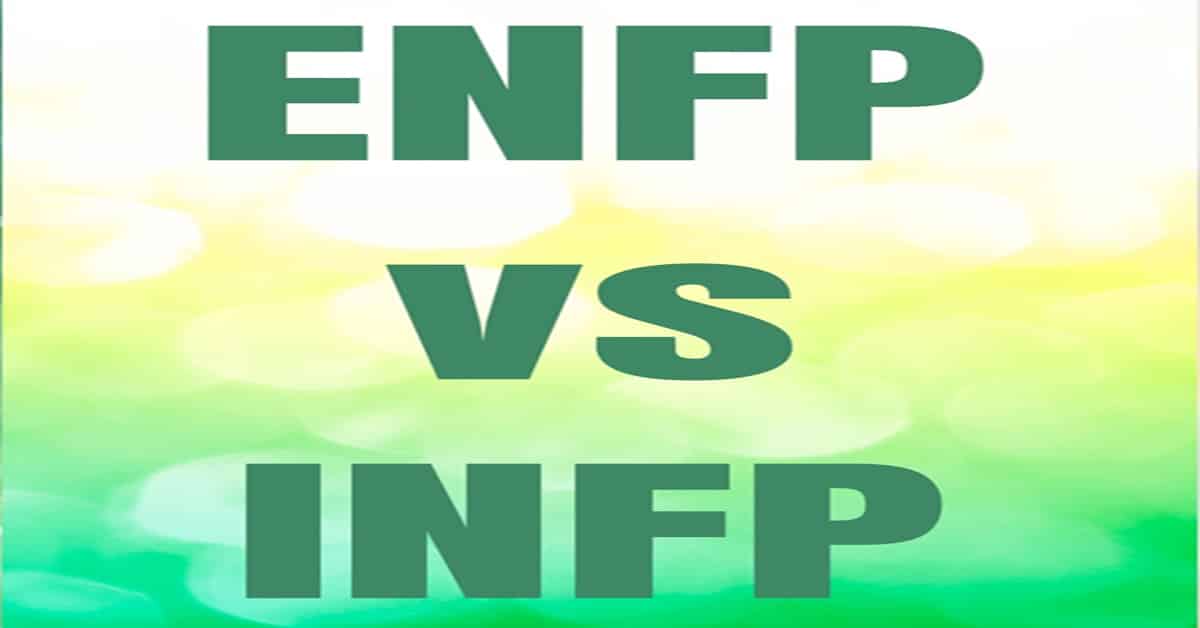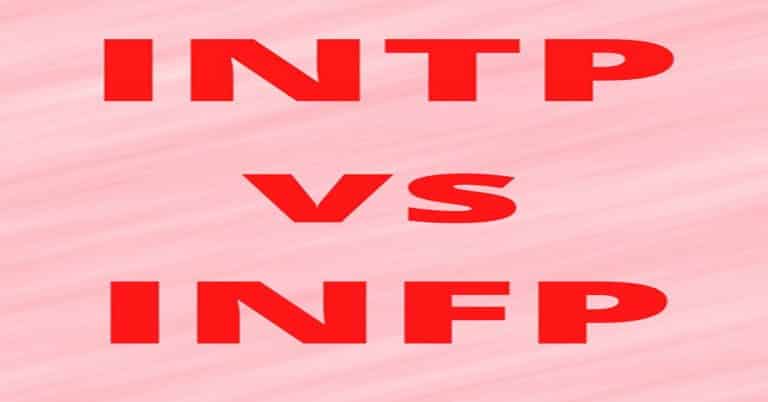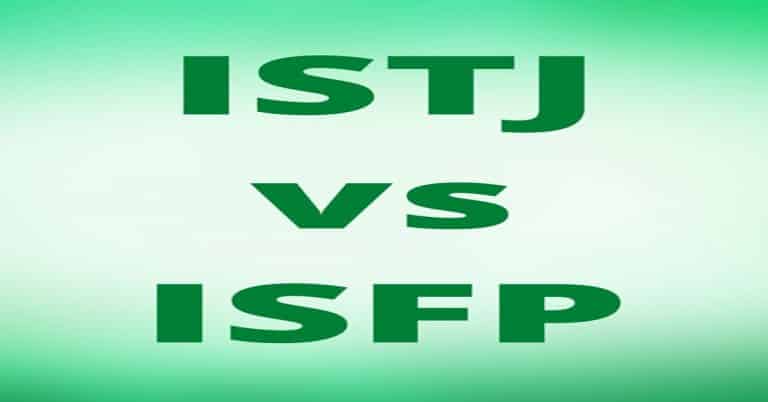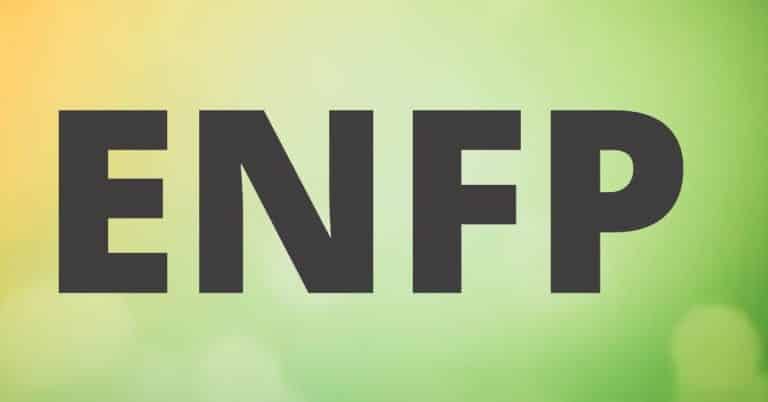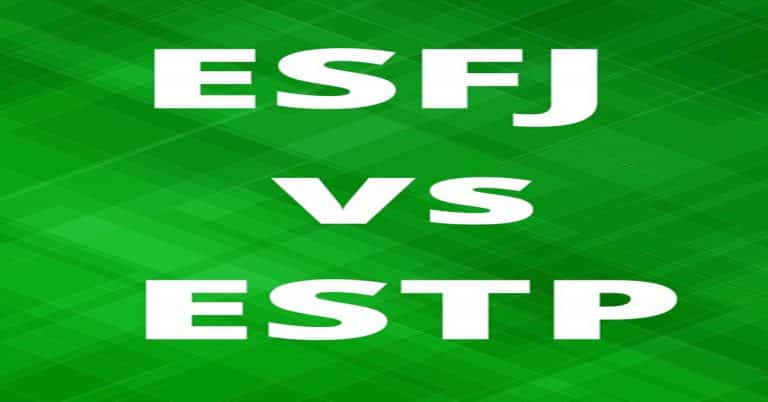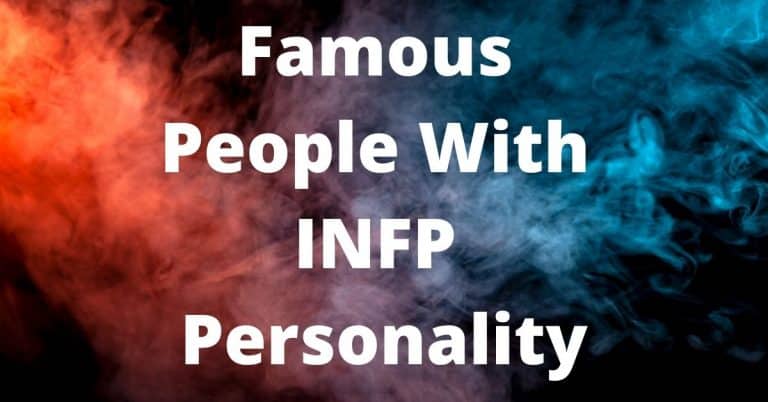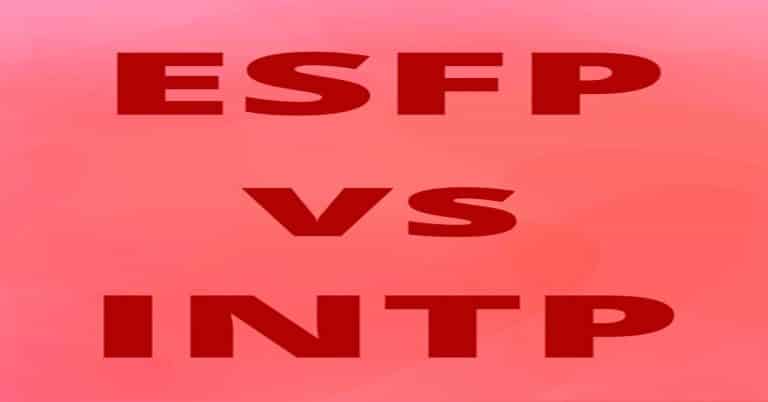ENFP vs INFP
How compatible ENFPs are with INFP?
Have you ever wondered why people are referring themselves to ENFPs, INFPs, or something like that? At a first glance, these sets of letters seem rather odd, but actually, both ENFP and INFP are types of Myers-Briggs’ 16 personality types.
Myers-Briggs designed this self-report instrument to help people identify their personality types, characteristics, strengths, and weaknesses. However, some of these personality types have many things in common which is sometimes a bit confusing.
ENFP and INFP are two of the most widely discussed personality types. People often ask questions about how they differ from each other, how they get along, and what their relationship looks like. Let’s review these types briefly, compare ENFP vs INFP and find out how compatible they are with each other.
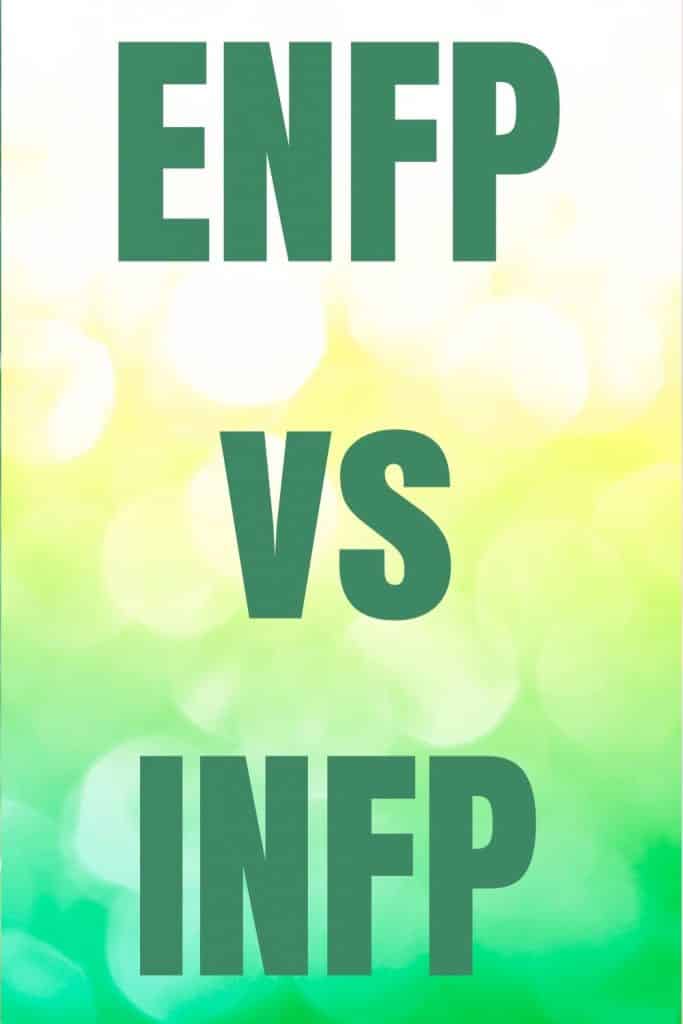
Brief Description of ENFP
ENFP is a sum of extraversion, intuition, feeling, and perceiving. ENFPs or “the champions” are often described as creative, charismatic people who tend to inspire others. They are full of energy and have great communication skills and therefore, they can easily adapt to new situations and stand out on social occasions.
People with this personality type are very innovative and have the ability to come up with new ideas whenever they need to. However, they usually find it hard to follow general rules, are rather disorganized and emotional. The fact that ENFPs are prone to overthink sometimes leads them to stress. About 5-7% of people tend to be ENFPs.
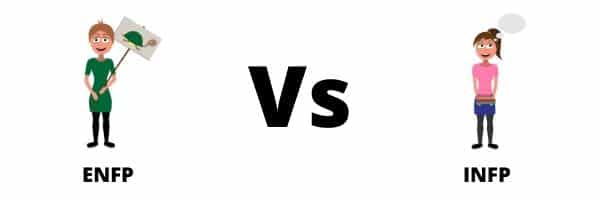
Brief Description of INFP
A mix of introversion, intuition, feeling, and perceiving creates what we call the INFP personality type, also referred to as “the mediator” or “the idealist”. People of this personality type usually have high values and idealistic aims. Such kinds of people are very curious, enthusiastic to explore the world and understand everything that’s inside and outside of themselves.
Considering they are introverted people, INFPs prefer being alone so that they’ll have time to think and find the meaning of their life. Although they care about others, they are pretty emotional, take everything seriously, and are rather difficult to get to know. People with INFP are relatively rare, about 4 to 5 percent of the population.
ENFP vs INFP Differences
People often think that ENFPs and INFPs are pretty much alike. While they do have plenty of things in common, there’s a major difference between them and this difference lies on the continuum of introversion – extraversion.
Both ENFPs and INFPs are extremely creative and can easily generate new ideas. However, while ENFPs are very outgoing people, love to communicate with others and externalize their ideas, INFPs prefer to leave their thoughts in their minds, without sharing them with anyone.
High extraversion is the main contributor of energy and enthusiasm of ENFPs towards everything and everyone. Unlike them, INFPs tend to stay in touch with themselves and build their inner world. That’s why sometimes they find it hard to understand others’ feelings. ENFPs, on the other hand, manage to feel others’ emotions better, due to their great social skills.
Now let’s dive into some of the most significant differences between ENFP vs INFP.
Socialization
- ENFPs can quickly make friends, socialize, and are often considered the most charismatic members of groups.
- ENFPs try to avoid attention from others, are shy in social situations, and prefer not to talk, even when they are certain what they think is right.
Making Decisions
- ENFPs are impulsive. They tend to talk once a new idea comes to their mind, without even thinking about it first. Therefore, sometimes they give opinions in the public without taking their consequences into consideration.
- INFPs spend hours considering whether or not to say things out loud and their creative opinions with others.
Work Ethic
- ENFPs are very absent-minded and disorganized. Due to their big enthusiasm, they start taking part in new projects effectively, but once something distracts them, they lose focus and are unable to finish what they started.
- INFPs can easily concentrate on everything. Whether they like it or not, they usually maintain focus until they finish the work.
Leadership
- ENFPs are born to be leaders. Due to their amazing communication skills, they easily built trust in teams and deserve trust. Their assertive attitude always inspires others.
- Although INFPs are rather asocial, they can be interesting leaders as a result of their inspiring ideas and dedication. However, they may find it hard to create emotional connections with their followers.
Romance
- ENFPs are hopeless romantics. They think of love as something meaningful and always try to think about their sincere feelings. Although they enjoy being romantic, it’s not something that they dream to do for the rest of their lives.
- INFPs are also hopeless romantics and that’s why they reconsidered a perfect match. They aim to find their soulmate and spend their lives caring about them.
Values
- The most important values for ENFPs are friendship, family, community, and creativity.
- What INFPs value the most is authenticity, independence, and creativity. They want to be original in whatever they do.
Relationship Between ENFP and INFP
Now as we already reviewed the key differences between these two personality types, let’s see how well they get along with each other. People often think that ENFPs and INFPs can be perfect for each other. Why? Because they believe that difference in just extraversion and introversion is not that vital. However, actually, things can be a little bit more complicated.
Even though both ENFPs and INFPs are very creative, can easily generate innovative ideas, and impress others, once they get in social situations together, problems arise. The fact that ENFPs are generally outgoing but INFPs don’t like to share their feelings is a big barrier to their relationship. INFPs want ENFPs to respect their need to stay alone from time to time but it seems like ENFPs can hardly accept that.
Considering INFPs and ENFPs are Feeling personalities, talking about how they feel and how they perceive the world is important to both of them. But ENFPs often push their INFP partners to be more open about their thoughts and share everything, which is not acceptable for INFPs. However, ENFPs usually trust INFPs, they both care about each other and create emotional bonds very easily.
One of the most important things about the relationship between INFPs and ENFPs is that they fill each other, balance each other’s strengths and weaknesses. Being independent is as important, as cooperating with others. Therefore, INFPs always try to help ENFPs to listen to others and consider their perspective, while ENFPs can teach INFPs to talk about their feelings and express what they think.
Final Words
As you can see, there are lots of similarities between ENFP vs INFP but considering the difference between extraversion and introversion, the question of whether they are a good match remains. However, due to the fact that they have three out of four personality functions in common (intuition, feeling, perceiving), you can be sure that theoretically, ENFPs and INFPs can get along well and have a very interesting romantic relationship as well.

